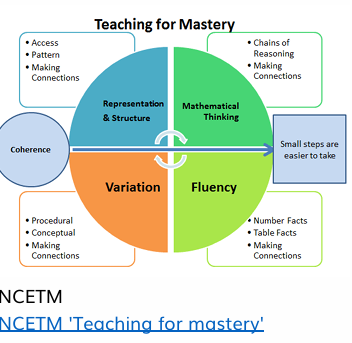Maths
At Woodlands Park Primary School, we see mathematics as a creative and highly interconnected discipline that has been developed over centuries, providing the solution to some of history’s most intriguing problems.
It is essential to everyday life, critical to science, technology and engineering, and necessary for financial literacy and most forms of employment.
A high-quality mathematics education therefore provides a foundation for understanding the world, the ability to reason mathematically, an appreciation of the beauty and power of mathematics, and a sense of enjoyment and curiosity about the subject.
We strive to encourage a love of these things both inside and outside of the classroom as we help our children become successful and proficient mathematicians, who can solve problems, fluently recall facts and reason mathematically.
We understand that our learners come from a wide variety of backgrounds with varying exposure to mathematical concepts and practical experience. As a result, they require robust and clear progression through mathematical concepts and support with learning. The goal of our Maths teaching is to deliver the core aims of the National Curriculum - both in the mathematics lessons and across the curriculum as a whole. Our children will be taught to be confident, successful and proficient mathematicians who can apply their Maths to other contexts and situations. We want our children to leave Primary school ‘Secondary ready’, with excellent foundations for future learning.
At Woodlands Park Primary School, we use Power Maths (recommend by the DFE) as a basis of our Maths lesson from Foundation to Year 6. At the heart of this programme is the idea that all children can achieve and be successful Mathematicians with the right growth mindset.
This mastery whole class approach empowers every child to succeed and progress together through interactive lessons and practical activities, providing small, cumulative steps to build a solid foundation of deep mathematical understanding. Power Maths uses the Teaching for Mastery model as illustrated. This has been developed by the NCETM NCETM 'Teaching for mastery'

Power Maths adopts a unique lesson sequence which is designed to deepen knowledge by building fluency, conceptual understanding and confidence in using correct mathematical vocabulary. Children are encouraged to solve problems each day through the use of concrete resources, pictorial representations and abstract thinking.
Concrete – Pictorial – Abstract Teaching Strategy
Children are encouraged to solve problems each day through the use of concrete resources, pictorial representations and abstract thinking.
Concrete is the ‘doing’ stage, using concrete objects to solve problems. It brings concepts to life as children have the opportunity to be hands on and use physical objects to aid them in developing their understanding.
Pictorial is the ‘seeing’ stage, where representations of the objects are used to support learning. This stage encourages children to make a mental connection between the physical object and abstract levels of understanding, by drawing or looking at pictures, circles, diagrams or models which represent the objects in the problem.
Abstract is the ‘symbolic’ stage, where children are able to use abstract symbols to model and solve Maths problems.

Lesson Time
In Key Stage 1 and 2, the time allocated to the teaching of mathematics is an hour a day. Each lesson is divided into sections that involve: - plenty of ‘discovery’ to promote curiosity - opportunities to ‘share’ methods, - collaboration time to ‘think together’ - when ready practice independently - time to reflect and evaluate their understanding of the key concept.
We limit the use of separate intervention groups and instead developing pre and post teaching opportunities in order to both close and prevent any gaps in children’s mathematical understanding and skills.
Times Table Rockstars and times table check
Y2/3/4, children learn their times tables through Times Table Rockstars working towards the times table check at the end of Year 4. We also have a fun weekly timetables club for all children to join in with, as well as times tables as part of their daily early morning work.
Power Maths Growth Mindset
With Power Maths, we promote five child friendly characters, each with their own positive skillset, to inspire and motivate children.
These characters are:

Planning
At Woodlands Park Primary School we believe that the key to success with all learners is quality first teaching. Teachers follow the Power Maths scheme in preparing their lessons. Each lesson is planned using a generic lesson PowerPoint to ensure consistency in approach, using the lesson sequence highlighted above.
Teachers ensure the key images, questions and vocabulary are part of their powerpoint and these enable them to model key learning. This scheme is adapted to meet the needs of the children.
Teachers will skilfully highlight connections between mathematical topics.
Assessment
Through the explicit teaching of the Mathematical skills, both the teachers and the pupils assess their learning continuously throughout the lesson. At the end of the unit, assessment tasks are completed, where children have the opportunity to reflect on their knowledge and understanding.
Formal assessments take place using Hodder PUMA assessments.
Our assessment systems enable teachers to make informed judgements about the depth of their learning and the progress they have made over time.
Monitoring and Evaluation
SLT and the Maths Team will monitor learning from planning, children’s books, pupil conferencing and classroom practice visits through Learning Walks. This provides feedback to staff and governors.





